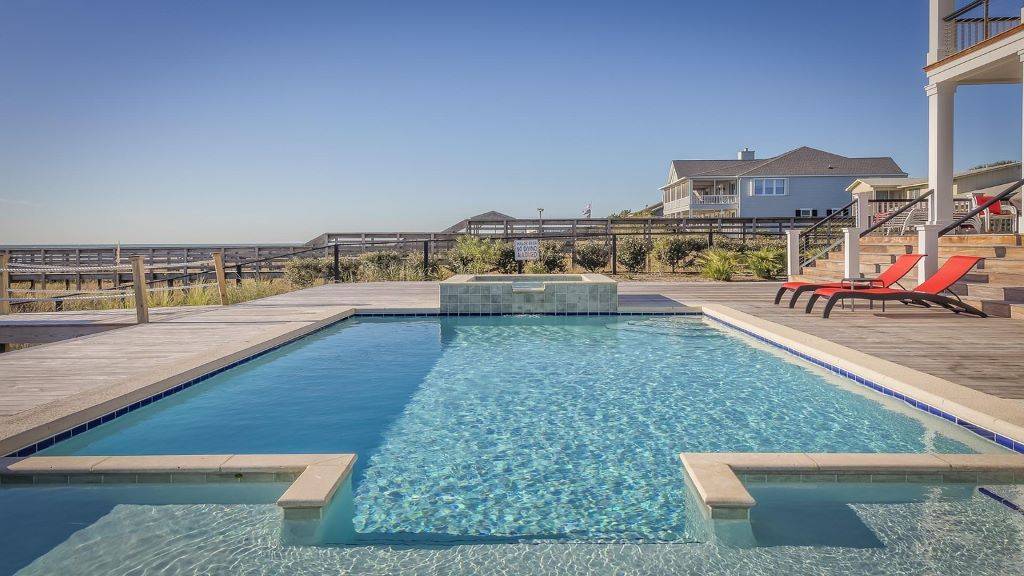Co-ownership of vacation homes represents a modern approach to luxury property investment. This ownership model allows multiple investors to purchase shares in a specific vacation property, creating a unique form of real estate ownership that differs from traditional timeshares.
When you invest in a co-owned vacation home, you gain actual property rights – not just usage privileges. Your investment includes:
- A deeded ownership share in the property
- The right to sell your share at market value
- Equal access to property usage through scheduling systems
- Shared responsibility for maintenance and upkeep
Understanding resale value dynamics in co-owned properties proves crucial for smart investment decisions. The value of your share can appreciate or depreciate based on various factors, including market conditions, property management quality, and location desirability. As the co-ownership model gains popularity in luxury real estate markets, potential investors need to grasp these value-influencing elements to make informed decisions about their vacation home investments.
Market Demand and Niche Appeal
The co-ownership market for luxury vacation homes has seen remarkable growth in recent years. Industry data shows a 40% increase in fractional ownership inquiries since 2020, reflecting changing preferences in vacation property investment.
Factors Driving Demand
This surge in demand stems from several key factors:
- Rising property prices in prime vacation destinations
- Increased desire for authentic luxury experiences
- Growing acceptance of shared economy models
- Remote work flexibility enabling extended stays
Unique Value Proposition of Co-Owned Vacation Properties
The niche appeal of co-owned vacation properties lies in their unique value proposition. You gain access to multi-million dollar properties at a fraction of the traditional cost – typically 1/8 to 1/4 of the full purchase price. This model attracts:
- High-net-worth professionals seeking smart investments
- Families looking for recurring luxury vacation experiences
- Remote workers desiring multiple “home bases”
- Investment groups pooling resources for premium properties
Interest from Major Real Estate Players
The market’s evolution has sparked interest from major real estate players. Companies like Pacaso and Ember have entered the space, offering curated portfolios of luxury properties. Their presence has legitimized the co-ownership model, attracting buyers who might have previously hesitated to consider shared ownership arrangements.
Popular Destinations with Strong Demand
Recent market analysis indicates strong demand in popular destinations like:
- Aspen, Colorado
- The Hamptons, New York
- Maui, Hawaii
- Lake Tahoe, California
- Miami Beach, Florida
These locations consistently demonstrate robust buyer interest, with some co-owned properties maintaining waitlists for available shares.
Resale Flexibility
Co-ownership shares in vacation homes work similarly to traditional real estate investments, offering distinct advantages in terms of market flexibility. You can list your share for sale at any time, set your desired price, and negotiate with potential buyers – just like you would with a regular property.
How the Resale Process Works
The resale process usually involves:
- Direct listing through real estate agents
- Online platforms specializing in fractional ownership sales
- Company-managed resale programs
Factors That Influence Resale Value
Market conditions have a significant impact on resale values in co-owned properties. During strong real estate markets, share values tend to increase along with traditional property values. The key factors affecting resale value include:
- Local market dynamics
- Property condition and improvements
- Seasonal demand patterns
- Economic indicators
Advantages of Co-Ownership for Resale
Co-ownership structures often provide built-in advantages for resale situations. Many management companies keep waiting lists of interested buyers, creating a ready market for shares. This built-in demand can help stabilize values during market fluctuations.
Unique Opportunities for Exiting Your Investment
The flexibility to exit your investment presents unique opportunities:
- Selling partial ownership reduces dependence on finding buyers for entire properties
- Lower price points attract a broader pool of potential buyers
- Multiple exit strategies exist, including selling to existing co-owners
Impact of Real Estate Market Conditions
Real estate market conditions affect co-owned properties differently than traditional vacation homes. While both types of properties respond to broader market trends, co-owned properties often show resilience through shared cost structures and professional management oversight.
Professional Management and Maintenance
Professional management companies play a crucial role in maintaining and enhancing the resale value of co-owned vacation properties. Companies like Pacaso handle essential responsibilities:
- Property maintenance and repairs
- Regular cleaning services
- Landscape upkeep
- Interior design updates
- Appliance replacements
- Seasonal property inspections
These management services create a hands-off ownership experience while preserving the property’s condition and value. Professional managers implement preventive maintenance schedules, addressing potential issues before they become costly problems.
The impact of professional management on resale value manifests in several ways:
- Consistent Quality Standards: Regular inspections and maintenance preserve the property’s aesthetic appeal and functionality
- Cost-Effective Repairs: Bulk service contracts and established vendor relationships reduce maintenance expenses
- Professional Scheduling: Efficient booking systems ensure fair usage and prevent wear from overuse
- Updated Amenities: Regular upgrades keep the property competitive in the luxury market
Management companies also maintain detailed maintenance records, providing potential buyers with transparency about the property’s upkeep history. This documentation often increases buyer confidence and supports higher resale values.
Properties under professional management typically maintain their market value better than individually managed vacation homes, as they benefit from consistent care and scheduled improvements that prevent deterioration and outdated appearances.
Usage Rights and Scheduling Systems in Co-Owned Vacation Homes
Fair access is a crucial part of successful co-ownership arrangements. A well-organized scheduling system makes sure that each owner gets fair access to the property during busy seasons and holidays, which directly affects the property’s attractiveness and resale value.
Advantages of Modern Scheduling Platforms
Modern scheduling platforms offer several key advantages:
- Rotating Priority Systems: Automated rotation of booking priorities ensures no single owner monopolizes prime dates
- Flexible Booking Windows: Advanced reservation periods allow owners to plan trips months ahead
- Last-minute Availability: Systems track unused days, enabling spontaneous getaways
- Holiday Balance: Equal distribution of major holidays across all owners throughout the year
Benefits for Property Value
The implementation of these scheduling features creates tangible benefits for property value:
- Reduced conflicts between co-owners
- Higher owner satisfaction rates
- Increased property utilization
- Enhanced appeal to potential buyers
Many co-ownership companies now integrate digital platforms that track usage patterns and automatically adjust schedules to maximize fairness. These systems often include:
- Real-time calendar updates
- Mobile app accessibility
- Automated notification systems
- Usage history tracking
Properties with robust scheduling systems typically command higher resale values, as potential buyers recognize the value of guaranteed access and systematic fairness in property usage rights.
Geographic Location and Property Quality in Co-Owned Vacation Homes’ Resale Dynamics
Location is the main factor that determines how much value a co-owned vacation home will have. Homes located in popular places like Aspen, Miami Beach, or the French Riviera usually hold their value better and have more potential for growth compared to less popular areas.
Advantages of Prime Vacation Destinations
Prime vacation spots have unique benefits:
- They attract visitors all year round with activities for every season.
- They are close to attractions and amenities that people love.
- During busy seasons, there is a strong demand for rentals.
- There is limited land available for new developments, making existing properties more valuable.
Importance of Construction Quality and Design Features
The way a property is built and its design elements also greatly impact its resale value. High-end co-owned homes often have:
Premium Construction Elements
- Hurricane-resistant windows
- Energy-efficient systems
- Smart home technology
- Premium building materials
Luxury Design Features
- Custom architectural details
- High-end appliances
- Designer furnishings
- Resort-style amenities
Properties that have both a great location and high-quality construction tend to increase in value more quickly. For example, a beachfront property in Hawaii with top-notch finishes might see a 15-20% increase in value over five years, while a similar property in a less desirable location might only grow by 5-10%.
The combination of location and quality has a multiplying effect on how much a property can be sold for. Buyers who are interested in co-owning properties look for homes that have both prestigious addresses and exceptional construction quality. This makes such properties more resistant to changes in the market.
Moreover, incorporating sustainable practices into these properties can further enhance their appeal. As noted in some studies, sustainability sells, making properties with eco-friendly features even more desirable.
Economic Factors Influencing Resale Value in Co-Owned Vacation Homes Market
The shared financial structure of co-owned vacation homes creates unique economic advantages that positively impact resale values. When multiple owners share financial responsibilities, the investment risk spreads across several parties, resulting in:
- Reduced Individual Financial Burden: Lower down payments, shared maintenance costs (which are often significant as indicated by the costs of caring), distributed property tax obligations, and split insurance premiums.
The decreased capital requirements attract a broader pool of potential buyers, particularly young professionals and families who might otherwise be priced out of the luxury vacation home market. This expanded buyer base strengthens demand and supports stable resale values.
Co-ownership models demonstrate remarkable resilience during market fluctuations. The shared financial structure allows owners to:
- Maintain Property Standards: Regular upgrades and improvements, timely repairs, professional management services, and high-end amenities.
These investments become more manageable when costs are divided among multiple parties, preserving the property’s value and appeal to future buyers. In fact, the ability to maintain property standards is crucial in upholding its market value as outlined in property appraisal policies.
The reduced financial barrier creates a self-reinforcing cycle: accessible entry points attract more potential buyers, creating competitive market conditions that help maintain strong resale values. This dynamic particularly benefits properties in desirable locations where traditional single-owner vacation homes might be prohibitively expensive for many buyers.
Restrictions and Their Impact on Resale Value Dynamics in Co-Owned Vacation Homes Sector
HOA regulations and local restrictions can significantly impact the investment potential of co-owned vacation properties. Many co-ownership agreements prohibit short-term rentals, limiting owners’ ability to generate additional income during unused periods.
Common restrictions include:
- Minimum stay requirements
- Limits on guest occupancy
- Restrictions on property modifications
- Strict noise and behavior guidelines
- Pet limitations
These limitations can deter investors seeking rental income opportunities, potentially shrinking the pool of future buyers. Some co-ownership models offer swap programs as an alternative, allowing owners to exchange time at different properties within a network. While this adds flexibility, it might not fully compensate for the lost income potential from direct rentals.
Local zoning laws can create additional complexities:
- Seasonal occupancy restrictions
- Commercial use limitations
- Parking regulations
- Special assessments
- Property use designations
Smart investors should carefully review all restrictions before purchasing shares in co-owned vacation properties, as these limitations directly influence future resale opportunities and property value appreciation.
Conclusion
Co-ownership of vacation homes presents a compelling investment opportunity that balances luxury living with financial prudence. The shared financial responsibility model creates a unique advantage – you gain access to premium properties while maintaining strong potential for positive resale value dynamics.
The data shows co-owned vacation properties deliver multiple benefits:
- Risk mitigation through distributed ownership and professional management
- Market accessibility with reduced capital requirements
- Value preservation via consistent maintenance and upgrades
- Investment flexibility with the ability to sell shares independently
Your dream vacation home doesn’t have to remain a dream. Co-ownership opens doors to prestigious locations and high-end properties while protecting your investment through proven value-retention mechanisms. The growing popularity of this ownership model, combined with professional property management and fair usage systems, creates an environment where property values can thrive.
Ready to explore co-ownership? The path to luxury vacation home ownership – and its potential investment returns – awaits.








